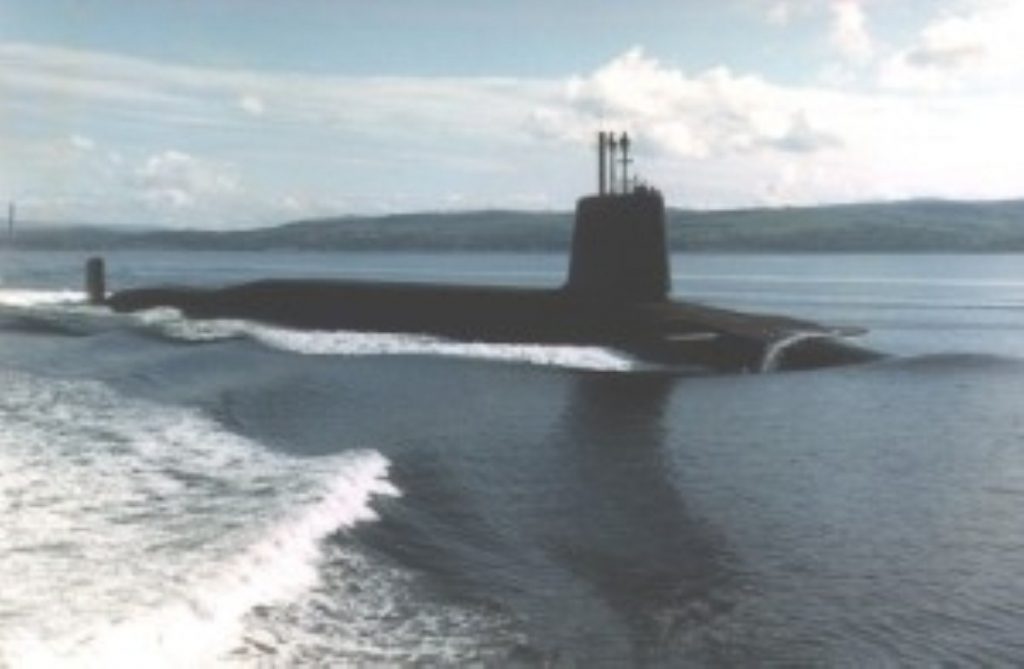Blair proposes new nuclear weapons system
Tony Blair has today set out plans to replace Trident, saying it would be “unwise and dangerous” for the UK to give up its independent nuclear deterrent.
The prime minister said that although the Cold War was over, and with it the most obvious reason for keeping nuclear weapons, the UK had to be prepared for the possibility that rogue states and possibly terror groups may be armed in the future.
He told MPs: “The whole point about the deterrent is not to create the circumstances in which it can be used but on the contrary, to try to create circumstances in which it is never used.”
The prime minister acknowledged the opposition from many Labour backbenchers to any kind of nuclear weapons, saying they had “perfectly respectable judgments”.


And in an apparent concession, he announced plans to cut the number of nuclear warheads by 20 per cent, from a maximum of 200 to less than 160. Ministers would also consider cutting the number of submarines used from three to four, he said.
But he stressed: “In the final analysis, the risk of giving up something that has been one of the mainstays of our security since the war, and moreover doing so when the one certain thing about our world today is its uncertainty, is not a risk I feel we can responsibly take.”
Mr Blair was speaking as a white paper setting out plans to replace Trident was published by the Ministry of Defence (MoD). It suggests that developing a new weapons system could take 17 years and cost about £1 billion a year between 2012 and 2027.
The government stressed this extra spending would not be at the expense of other defence areas, such as the army, and Mr Blair said he hoped that all the work building the new submarines would be carried out in the UK.
Conservative leader David Cameron said his party would support the government’s proposals, arguing the case for an independent nuclear deterrent was “very powerful”.
“Those who argued that the world has changed so that no deterrent is required entirely miss the point. Yes, the world has changed, and yes, it continues to change very rapidly, but that is the very case for keeping up our guard,” he told MPs.
However, he questioned whether cutting the number of nuclear warheads would leave Britain with enough to form a “credible minimum deterrent”, and said that with Tory support the prime minister should not have to “make concessions” to his backbenchers.
The Liberal Democrats have also expressed support for replacing Trident, but today leader Menzies Campbell called for the final decision to be delayed until 2014, to allow for “proper considerations” of the threat assessment, cost and Britain’s international obligations.
“Why is this decision being pushed by his own cabinet and through parliament just as the prime minister is leaving Downing Street? Is this about Britain’s interests or his own legacy?” he asked.
However, Mr Blair said a decision must be taken by 2007. By 2024, only two of the four submarines currently deployed would be in operation, which was not enough to maintain a continuous patrol. With a 17-year lead time, he said a new system must begin next year.
The prime minister also addressed concerns raised by a number of Labour MPs and anti-nuclear campaigners about Britain’s obligations under the nuclear non-proliferation treaty (NPT). He insisted it allowed the UK to replace its existing nuclear weapons systems.
Today’s white paper will be followed by a three-month consultation and MPs will vote on the government’s proposals in March.
Read Mr Blair’s statement in full or see other responses.by clicking here.

